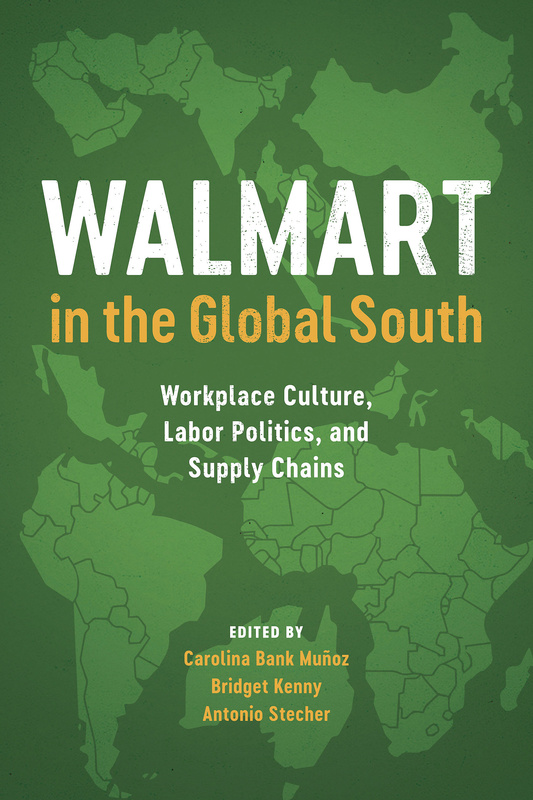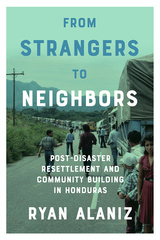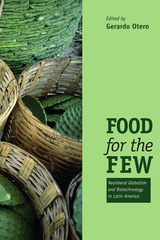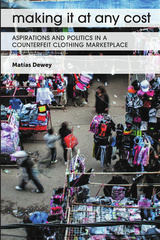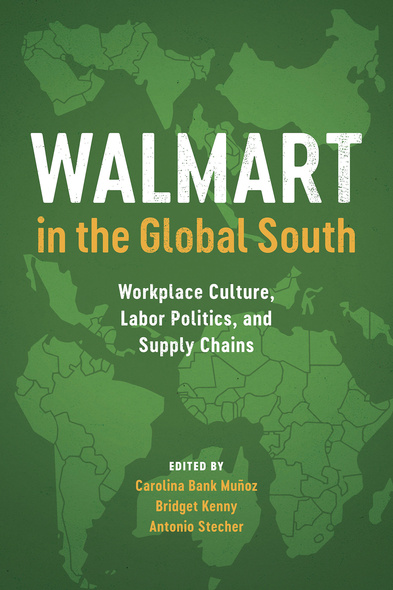
Walmart in the Global South
Workplace Culture, Labor Politics, and Supply Chains
As the largest private employer in the world, Walmart dominates media and academic debate about the global expansion of transnational retail corporations and the working conditions in retail operations and across the supply chain. Yet far from being a monolithic force conquering the world, Walmart must confront and adapt to diverse policies and practices pertaining to regulation, economy, history, union organization, preexisting labor cultures, and civil society in every country into which it enters. This transnational aspect of the Walmart story, including the diversity and flexibility of its strategies and practices outside the United States, is mostly unreported.
Walmart in the Global South presents empirical case studies of Walmart’s labor practices and supply chain operations in a number of countries, including Chile, Brazil, Argentina, Nicaragua, Mexico, South Africa, and Thailand. It assesses the similarities and differences in Walmart’s acceptance into varying national contexts, which reveals when and how state regulation and politics have served to redirect company practice and to what effect. Regulatory context, state politics, trade unions, local cultures, and global labor solidarity emerge as vectors with very different force around the world. The volume’s contributors show how and why foreign workers have successfully, though not uniformly, driven changes in Walmart’s corporate culture. This makes Walmart in the Global South a practical guide for organizations that promote social justice and engage in worker struggles, including unions, worker centers, and other nonprofit entities.
Through its wide-ranging and multi-faceted analysis, Walmart in the Global South provides a thought-provoking examination of globalized capital accumulation, the embeddedness of [transnational corporations] within local environments and relations, and the struggle between [transnational corporations] and workers.
[Walmart in the Global South] reads like a stolen playbook, explaining how the biggest retailer on the planet has managed to infiltrate, appropriate, exploit, and degrade working conditions around the world…Books like this one are essential to remind consumers and shareholders in the global North that everyday low prices depend on the shocking exploitation of working people around the world.
An invaluable addition to the literature on modern global capitalism that demonstrates both the company's power to reshape work and work cultures globally and also how worker resistance can force it to make compromises with unions it would never acquiesce to in the United States.
While the academic and popular literature on Walmart is vast, far less is known about the world’s leading retailer’s activities in Latin America, Asia, and Africa. Thus, this book is extremely timely—a fascinating analysis of Walmart’s labor practices in the Global South. For far too long, scholars and activists have focused on the company’s activities in the United States. This book helps us see the much bigger picture.
Carolina Bank Muñoz is a professor of sociology at Brooklyn College and the Graduate Center of the City University of New York.
Bridget Kenny is an associate professor of sociology at the University of the Witwatersrand.
Antonio Stecher is a professor and dean of the School of Psychology at Universidad Diego Portales.
- Acknowledgments
- Introduction. Situating Walmart in a Global Context: Workplace Cultures, Industrial Relations, and Supply Chains (Carolina Bank Muñoz, Bridget Kenny, and Antonio Stecher)
- 1. Walmart in Brazil: From Global Diffusion to National Institutional Embeddedness (Katiuscia Moreno Galhera, Scott B. Martin, and João Paulo Cândia Veiga)
- 2. Walmart and Labor Conditions in South Africa: Local Retailing, Contract Labor, and Union Challenges (Bridget Kenny)
- 3. Walmart Workers in Chile: A Case of Union Democracy, Militancy, and Strategic Capacity (Carolina Bank Muñoz)
- 4. Rank-and-File Union Activism in Walmart Argentina (Paula Abal Medina)
- 5. Walmart Culture in the Information Technologies Industry in Mexico (Gabriela Victoria Alvarado)
- 6. Walmart’s Direct Farmer Program in South Africa: Developmental State Victory or Corporate Whitewash? (Stephen Greenberg)
- 7. Brokering Development: NGOs and Walmart in Low-Income Countries (Jennifer Wiegel)
- 8. Walmart’s Human Trafficking Problem: The Shrimp Supply Chain in Thailand (Nicholas Rudikoff)
- Final Reflections (Carolina Bank Muñoz, Bridget Kenny, and Antonio Stecher)
- Contributors
- Index

